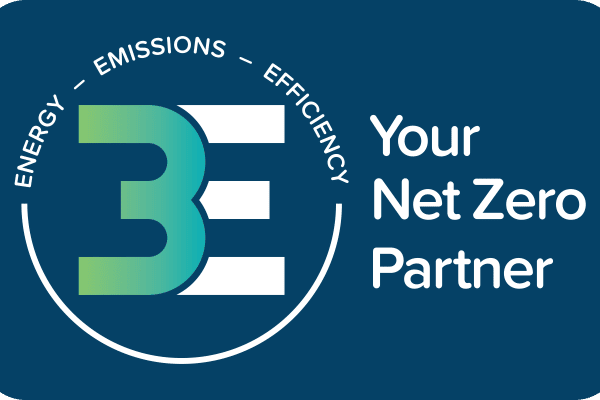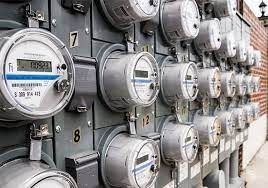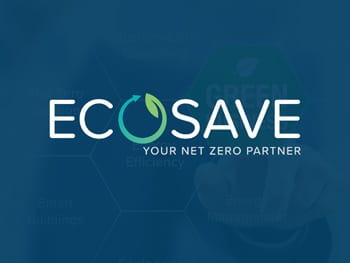In celebration of Women’s Month, we interviewed a couple of inspiring women who work at Ecosave – Tara McMillan (Project Manager, Ecosave) and Swetha Kumar (Bids & Proposals Manager, Ecosave).

We asked them several questions including:
- Q: Aside from your relatives, which woman (or women) – past or present – do you most admire and look up to and why? (Read their response)
- Q: What are the challenges faced by women in the modern workplace? Are there obstacles women need to overcome when advancing their careers? (Read their response)
- Q: How can we mobilise communities to pursue a career in a predominantly male industry? (Read their response)
- Q: How can women promote gender and cultural equality in the workplace? (Read their response)
- Q: How does your role in Ecosave make an impact in the industry? (Read their response)
- Q: How is Ecosave promoting women’s empowerment in the workplace? (Read their response)
- Q: What is your message for Women’s Month? (Read their response)
Aside from your relatives, which woman (or women) – past or present – do you most admire and look up to and why?
Tara McMillan: “I think, as a young mother, it is hard to go past Jacinda Ardern, the Prime Minister of New Zealand. There is so much to admire about her. Having a baby while working in a leadership position, as the Prime Minister of her country, you know? Breastfeeding her infant child while she is governing the country? Yeah, that alone is amazing! Going through COVID-19 in 2020? Prime Minister Arden really showed that what you would consider traditionally female qualities: empathy, compassion and interdependence.”
“Female qualities can be a great asset to any leader, and any person who is running a country, or for that matter, an organisation. So yeah, I really admire her. She has done great things for both men and women during the height of the global pandemic.”
Swetha Kumar: “That is a very hard question to answer because every woman I have met, or every single person I have met man or woman, have been inspiring in one way or another. We are all unique: the way we think and speak – there are things about all of us that make us who we are.
I remember what Kahlil Baet, said earlier in the meeting this morning: No one can really be you. Only you can be you. Because that is your blueprint. It is almost as unique as your fingerprint. Every single person I met during my growing up years: my teachers – predominantly female although I also had male teachers – had an impact on me.
Enid Blyton, a successful children’s book author, was also a major influence during my growing up years. I mostly read her books, ‘The Secret Seven’, ‘The Famous Five’ and ‘Noddy and Friends’. Her stories helped fuel my imagination and creativity during my childhood. Emily Dickinson, Maya Angelous and Margaret Atwood are also female authors I look up to. I am a “words person” and these authors have over the years helped me develop my creativity and shaped me as a person.”
What are the challenges faced by women in the modern workplace? Are there obstacles women need to overcome when advancing their careers?
Tara McMillan: “There are a few. I think in a male-dominated field there can be prejudice against women. I am not saying that all men are prejudiced against women, but if you are used to seeing traditional male traits in a leadership role, it is hard to picture a woman in that role.”
“So, it is important, from an HR perspective, the way the company hires people or how an organisation hires people. They should fight any kind of unconscious bias and make sure to hire people based on their qualifications.”
“They must ask a broader set of interview questions rather than any preconceived ideas of who filled that role before. It is a big challenge to remove biases for traditional gender roles.”
Swetha Kumar:
I think one of the challenges that I have faced when I started off, is that sometimes, I just had to swallow my pride when sexist comments were being made. I probably will not keep mum if that were to happen today. Sometimes I just wish I had the same courage maybe five years ago, to speak up against these things, but maybe because it was a person who was in a position of authority or position in power. I felt like it was more important to keep my job than having a voice, back then.
I was watching this very powerful video a few months ago where a woman was saying that when working in a male environment, sometimes, you must be aggressive or behave like a man. But I think there is beauty in being a woman, right? Because nature created us a certain way because it wanted that distinction, and as much as masculine is beautiful, the feminine is beautiful as well, and I think there is beauty in preserving that. Beauty in conserving this distinction in its true form, especially for women to behave like who they are and to sort of feeling safe to be able to have a voice, without fear of retaliation from either your boss or from your colleagues.
Sometimes, you must choose your battles and be intelligent. You must be strategic because some battles are just not worth fighting. It is not about you trying to change the world, but if you can change the mindset of one person or those around you, especially your immediate colleagues or social circle, to make sure that you’re voice and opinion are heard and respected, that would be true inclusion.
How can we mobilise communities to pursue a career in a predominantly male industry?
Tara McMillan: “This is a tricky one for me, but I think visibility is the key. If younger women see established women in an industry, that will encourage them to pursue that career. If there are successful women in an industry, it will help plant seeds, I suppose.”
“I believe that young people’s passion for action on climate change will help encourage young women to enter the engineering field. They can be part of the change: saving the environment and lead the way for other women to pursue careers in male-dominated industries.”
Swetha Kumar: “In my view, I think women have always been leading the way. I feel like women have always been at the forefront of spearheading the community forward – regardless of whatever industry they’re in. Even in schools, girls score better than boys and women are stepping forward in what was previously male-dominated be it the armed forces, sports and engineering etc.
“If you want to be the change, just be part of the change. I think the only way you can do that is for you to have a mindset that is receptive and inclusive. There must be a shift in the way we think. Helping other women, making sure that the communities we live in are associated with networks and forums that will help mobilise and empower others to add value to the larger society.”
How can women promote gender and cultural equality in the workplace?
Tara McMillan: This is an interesting question. To promote gender and cultural equality in the workplace? It is primarily up to people in positions of leadership to really drive these – whether they be male or female. It is also important that there are women in positions of leadership at any organisation.
It‘s good for businesses to have a range of different people, in positions of leadership, to promote diversity. They can use their real-world experiences to influence change and promote cultural equality in the workplace.
Swetha Kumar: It comes back to what I mentioned earlier: I do not think about gender equality as much because I already feel like an equal. When I enter the room, I do not see men or women in front of me. I see people and if I see the best person in the right role, I have no qualms about working with either a man or a woman.”
“We are seeing a great cultural shift; a greater sense of equality for women, for them to have an equal footing in today’s day and age. I truly believe in equality for all not just women, and I say this to most women: Regardless of what their personality is, whether they are outspoken, shy, direct, or indirect, that cultural and gender equality is in the mind – if you feel like an equal and behave like an equal, people will treat you accordingly, sooner or later.”
How does your role in Ecosave make an impact in the industry?
Tara McMillan: This is a hard one as well, I suppose. I feel like I am doing the same job as any man in our team; as my role as a project manager is about delivering quality energy savings projects for large energy users, and users and ensuring that performs well in terms of energy efficiency and saving greenhouse gases. In that sense, I believe the part I play is making an impact on the industry and environment.
“I‘ve built strong relationships with my colleagues and take cues from my team when they need my help. I would like to mentor people and pass all the knowledge and experience that I gained over the years, vice versa.”
“I hope that through my work and mentorship, I will leave a positive impact on Ecosave and the industry as well.”
Swetha Kumar: “I make sure that I leverage all the knowledge I’ve gained over the years to add value to my work. Our business, and to my current line of work, is what really helps me make an impact in this industry. My role, big or small, I give my 100% on the job and supporting whoever I work with and those around me.”
“You also need to constantly upskill yourself to understand the industry whilst staying relevant. Putting your best forward, understanding how your role adds value to the larger business helps me move the needle within the industry.”
How is Ecosave promoting women’s empowerment in the workplace?
Tara McMillan: “There are a few things that I could think of in relation to your question. So, one of the key things is the work culture. If you feel you are in an open and accepting culture, it is important when you are a minority. “
“I suppose working in an engineering profession, which is male-dominated, I have always worked with more male than female engineers. Ecosave’s work culture has always been good. I never felt uncomfortable at all and it means a lot in, terms of empowering me or feeling like I have a voice to speak up.”
“In terms of engineering, Ecosave is good at providing opportunities for personal development, training, and positions of influence.”
“I always felt that I have been rewarded for my performance and given opportunities to grow in terms of my career. I believe that is empowering.”
Swetha Kumar: Well, that is a very good question, because I think empowerment is a hot topic it’s been the buzzword since the 2000s, as much as feminism
Coming back to the question of how Ecosave is promoting women’s empowerment in the workplace, I would like to believe that I am a good example of that as that was one of the key questions, I put to the management during my initial job interview regarding how well represented are women in the company. I think it is one of Ecosave’s core values is to hire people who are the best fit for the role. So, I think the suitability for the role, is important not gender. As long as there is no discrimination in the workplace and you feel safe in sharing your views that is reason enough to feel empowered.
What is your message for Women’s Month?
Tara McMillan: If you are good at maths or similar fields, don’t be afraid to pursue your passion or career – even if it may be a male-dominated industry. The key is to work for a company that has a great culture in terms of work environment for women and people from diverse backgrounds. Ecosave a good one to consider because we are inclusive, and women are encouraged to speak up.”
“Young women who want to be engineers and are passionate about acting on climate change, this is the ideal industry for them. It is their chance to work for the future and save the environment.”
Swetha Kumar: “I think it’s important for women to feel like they belong, to have a voice, and no one can really give you a voice. It must come from within, and by that, I don’t mean that you are meant to be loud but speak confidently. You can speak softly and still have a voice, as long as you make sense.”
“The tone of your voice or gender really does not define who you are. Courage to pursue your vision, compassion for fellow humans and standing up for what is right is what makes us who we are. Overall, as a woman, I don’t want to get caught up in this gender dialogue while we’re speaking of empowerment and equality. These can co-exist only when your mindset includes men, I was raised with an egalitarian mindset so I truly believe women are not a statistic or a separate species that we need to advocate or campaign for, we are as mainstream as men, we work as hard as they do, multitask, and do a much better job at that so what makes us any different?





